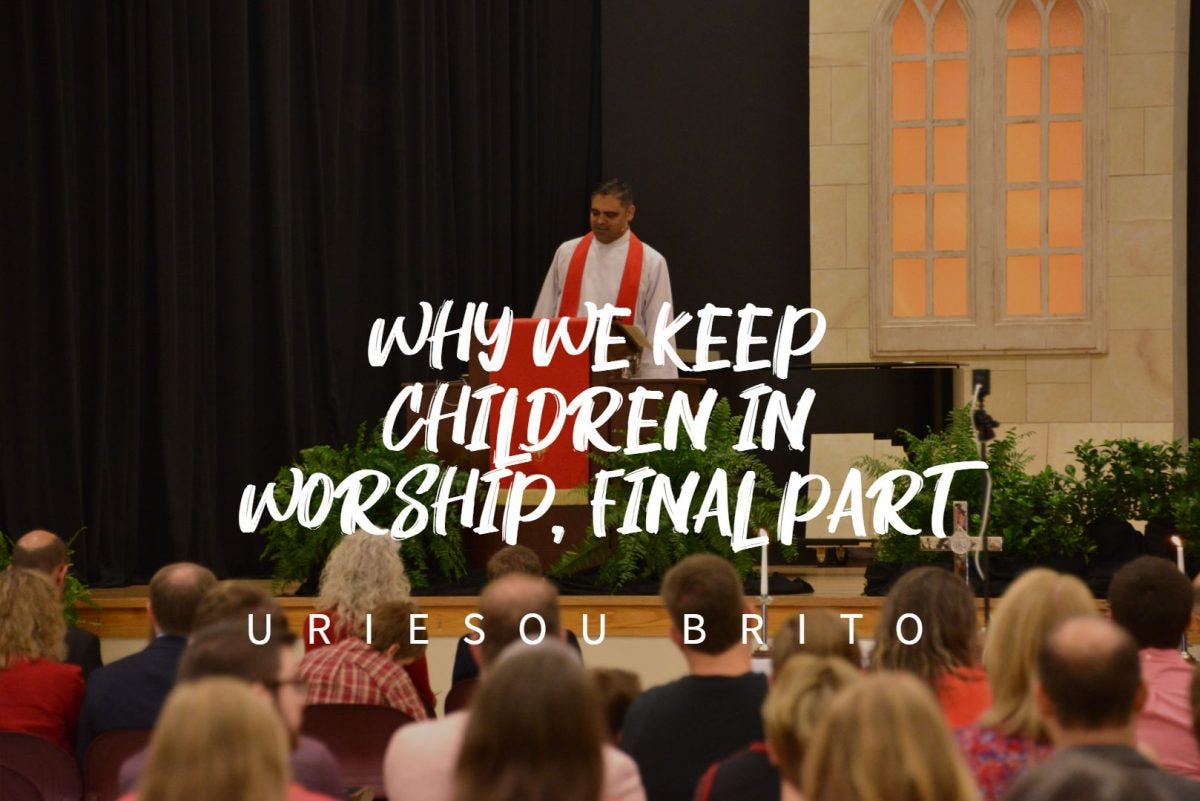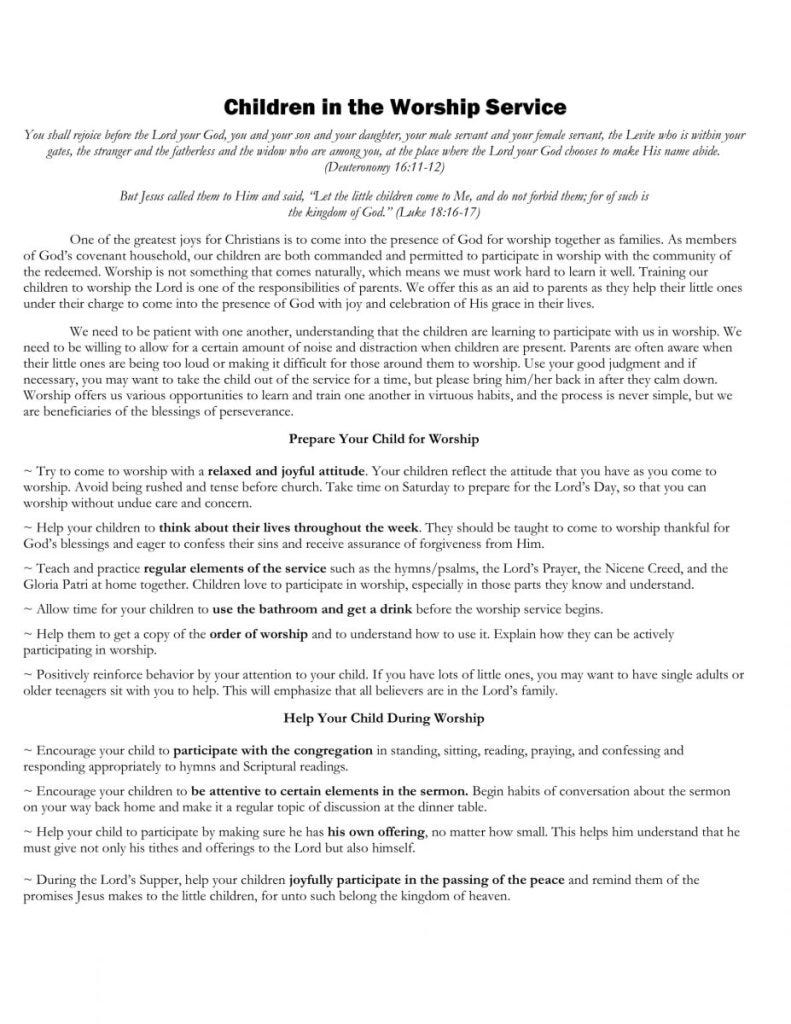The Case for Children in Worship, Final

Introduction, Part 1, Part 2, Part 3, Part 4, Part 5, Part 6
It’s time to say good-bye to our short series on children in worship. Some of you have raised important questions, but at the end, the majority of them stemmed from a deep concern about practical issues, rather than particular biblical interpretation. These are always legitimate unless one is stuck on the exceptions rather than the ordinary and objective imperatives of the Bible.
Having worked on some of the rationale from the Scriptures, it’s time to offer some practical wisdom for those who are open to the practice of keeping children in worship from the beginning to the end. The following is an insert we offer our congregation. I will place a link in the comment section of the document in case you wish to print it.
Children in the Worship Service
You shall rejoice before the Lord your God, you and your son and your daughter, your male servant and your female servant, the Levite who is within your gates, the stranger and the fatherless and the widow who are among you, at the place where the Lord your God chooses to make His name abide. (Deuteronomy 16:11-12)
But Jesus called them to Him and said, “Let the little children come to Me, and do not forbid them; for of such is
the kingdom of God.” (Luke 18:16-17)
One of the greatest joys for Christians is to come into the presence of God for worship together as families. As members of God’s covenant household, our children are both commanded and permitted to participate in worship with the community of the redeemed. Worship is not something that comes naturally, which means we must work hard to learn it well. Training our children to worship the Lord is one of the responsibilities of parents. We offer this as an aid to parents as they help their little ones under their charge to come into the presence of God with joy and celebration of His grace in their lives.
We need to be patient with one another, understanding that the children are learning to participate with us in worship. We need to be willing to allow for a certain amount of noise and distraction when children are present. Parents are often aware when their little ones are being too loud or making it difficult for those around them to worship. Use your good judgment and if necessary, you may want to take the child out of the service for a time, but please bring him/her back in after they calm down. Worship offers us various opportunities to learn and train one another in virtuous habits, and the process is never simple, but we are beneficiaries of the blessings of perseverance.
Prepare Your Child for Worship
~ Try to come to worship with a relaxed and joyful attitude. Your children reflect the attitude that you have as you come to worship. Avoid being rushed and tense before church. Take time on Saturday to prepare for the Lord’s Day, so that you can worship without undue care and concern.
~ Help your children to think about their lives throughout the week. They should be taught to come to worship thankful for God’s blessings and eager to confess their sins and receive assurance of forgiveness from Him.
~ Teach and practice regular elements of the service such as the hymns/psalms, the Lord’s Prayer, the Nicene Creed, and the Gloria Patri at home together. Children love to participate in worship, especially in those parts they know and understand.
~ Allow time for your children to use the bathroom and get a drink before the worship service begins.
~ Help them to get a copy of the order of worship and to understand how to use it. Explain how they can be actively participating in worship.
~ Positively reinforce behavior by your attention to your child. If you have lots of little ones, you may want to have single adults or older teenagers sit with you to help. This will emphasize that all believers are in the Lord’s family.
Help Your Child During Worship
~ Encourage your child to participate with the congregation in standing, sitting, reading, praying, and confessing and responding appropriately to hymns and Scriptural readings.
~ Encourage your children to be attentive to certain elements in the sermon. Begin habits of conversation about the sermon on your way back home and make it a regular topic of discussion at the dinner table.
~ Help your child to participate by making sure he has his own offering, no matter how small. This helps him understand that he must give not only his tithes and offerings to the Lord but also himself.
~ During the Lord’s Supper, help your children joyfully participate in the passing of the peace and remind them of the promises Jesus makes to the little children, for unto such belong the kingdom of heaven.
The post The Case for Children in Worship, Final appeared first on Kuyperian Commentary.


